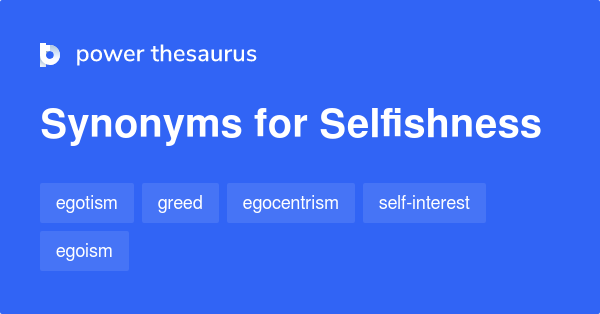In a world often dominated by a competitive ethos, the notion of looking out for “number one” has attained a perfunctory status, glorifying a sense of personal gain at the expense of communal welfare. However, the Baha’i teachings offer a nuanced perspective, urging individuals to reevaluate the meaning of selfishness and the impacts of self-serving attitudes within the context of spiritual and social development. This analysis seeks to dissect the Baha’i viewpoint on selfishness, advocating for an egalitarian approach that emphasizes collective well-being over individualistic pursuits.
At the crux of Baha’i teachings is the understanding that all humanity is intertwined, akin to the strands of a tapestry. The concept of unity is intrinsic to the Baha’i Faith, with the belief that the advancement of society is inexorably linked to the wellbeing of its members. A self-centered approach not only undermines personal moral development but also stunts communal progress. Therefore, it becomes imperative to transcend the egoistic confines that typically characterize modern existence.
Baha’i writings elucidate the notion that true success and fulfillment arise from selflessness rather than selfishness. Abdu’l-Baha, the son of Baha’u’llah, the founder of the Baha’i Faith, articulates that “Selfishness is the cause of the calamities of mankind.” This poignant reflection encapsulates the detrimental effects that self-centered actions can impart not just to individuals but to society as a whole. The repercussions of such behavior can lead to discord, strife, and conflict, unraveling the very fabric of community life.
In the Baha’i paradigm, the innate purpose of human existence revolves around the cultivation of virtues, which are essential for spiritual growth. Among these virtues are love, compassion, and service to others. Embracing a selfless disposition is posited as a pathway to achieving profound contentment. Rather than nurturing a mindset focused on individual gain, Baha’is are encouraged to prioritize altruism—leading to actions that uplift and benefit others. This transformative shift from selfishness to selflessness aligns with the Baha’i commitment to the principles of justice and equity.
Moreover, the teachings emphasize the concept of ‘consultation’ as a fundamental practice within the community. In settings where decisions are made collectively with an emphasis on shared welfare, selfish interests are systematically diluted. Consultation encourages individuals to transcend personal desires, fostering an environment ripe for collaboration and mutual respect. It represents an antidote to selfishness, as participants engage in sincere dialogue, weighing the needs and perspectives of others alongside their own. This process not only enhances individual understanding but strengthens the communal fabric collectively.
Furthermore, the Baha’i perspective on selfishness invites individuals to reconsider the inherent value of self-sacrifice. Selflessness is not merely the absence of selfishness; it is an active commitment to prioritizing the greater good. This principle echoes across the teachings, urging individuals to make personal sacrifices for the advancement and welfare of the community. In doing so, a reciprocal relationship develops—where the flourishing of the community inherently supports individual well-being, creating a harmonious balance.
Contemplating the societal implications, it becomes evident that a shift from selfishness to selflessness invites a plethora of benefits. Such a paradigm not only fosters a constructive environment conducive to collective growth but subsequently promotes emotional and psychological resilience among individuals. Communities characterized by unity, cooperation, and mutual responsibility experience reduced levels of isolation, conflict, and despair. This accelerates a fulfilling state of collective existence, one that is alternatively distant from the pervasive loneliness often perpetuated by selfish behavior.
The principle of service—a core tenet within the Baha’i faith—acts as both a remedy and preventive measure against the inclinations of selfishness. Engaging in acts of service cultivates empathy and a profound sense of connection to others. This practice is not merely about performing charitable acts; it encompasses a broader spectrum that includes promoting social justice, advocating for the oppressed, and fostering educational initiatives. Each step taken toward service is a step away from individualized pursuits, nurturing a deeper understanding of our shared humanity.
As individuals contemplate their roles in collective liberation and advancement, it is vital to confront the entrenched belief that looking out for oneself inherently contradicts the interests of others. By embracing a Baha’i-oriented perspective on selfishness, a transformative journey unfolds—one that amplifies the power of selflessness, cultivates virtue, and prioritizes collective progress. This paradigm shift promises not only personal growth but also a resurgence of genuine human connection, empathy, and unity.
Ultimately, the teachings convey that redefining personal success in terms of service to humanity, rather than selfish gain, holds the key to unlocking a future replete with hope, harmony, and flourishing communities. In an era often riddled with isolation and disconnection, the Baha’i outlook on selfishness poses an encouraging invitation to embrace love and altruism as guiding principles. It is through this conscious pursuit of selflessness that both individual fulfillment and collective harmony may be realized, transcending the pervasive shadows of selfishness.
